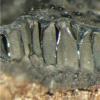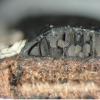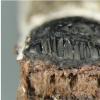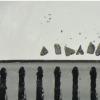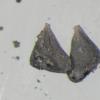
29-11-2024 21:47
Yanick BOULANGERBonjourJ'avais un deuxième échantillon moins mat

27-02-2026 17:51
 Michel Hairaud
Michel Hairaud
Bonjour, Quelqu'un peut il me donner un conseil p

27-02-2026 16:17
 Mathias Hass
Mathias Hass
Hi, Found this on Betula, rather fresh fallen twi

27-02-2026 12:56
Åge OterhalsFound on fallen cones of Pinus sylvestris in midle

27-02-2026 11:21
 Yannick Mourgues
Yannick Mourgues
Hi to all. Here is a specie that can may be relat

26-02-2026 15:00
Me mandan el material seco de Galicia, recolectada

24-02-2026 11:01
Gernot FriebesHi,found on a branch of Tilia, with conidia measur

23-02-2026 11:22
Thomas Læssøehttps://svampe.databasen.org/observations/10584971
 Hi to all,
Hi to all,Found this fungus on wood (unknown) in Southeast Brazil.
I believe it is a Biscogniauxia species: no pigments in KOH, stromata carbonaceous, ascospores with conspicuous germ slit, growing on the bark (not on the wood itself).
I didn't have much time to work with this fungus, but I made some measurements of the ascospores: 11-12.5 x 6.5-7.5
I checked the paper of Ju et al. 1998 (Mycotaxon 66:1-98).
According to them, there are 5 species and 2 vars. (capnodes, capnodes var. Rumpens, capnodes var. Theissenii, communapertura, divergens, mediterranea and sinuosa) reported from Brazil, and using the key I reached B. capnodes, mainly because of the ascospores size and perithecia seldom sharing a commom ostiole.
Could someone confirm if I'm in the right path? I'm not familiar with this genus, in fact this is my first time dealing with it. :0)
P.S.: sorry for some bad photos.

this is very likely B. capnodes.
A photo of a stroma in vertical section, just broken, would be very informative as to the size of perithecia, their shape and their arrangement, let alone the thickness of the stroma itself.
Cheers,
Jacques

Thank you very much for the help.
The perithecia are separated each other by a carbonaceous layer, i.e. locules with individual perithecia, easily removed, variable in size (up to 500 micra width and 600 high - a measured only few ones) and shape, most of them assuming a cordate shape.
I'm in doubt what do you mean with "let alone the thickness of the stroma itself" but I think that the photos have the information that you asked.
Thanks again,
Dartanha

Perithecial shape and arrangement fit well. B. capnodes.
It is not uncommon, you will find it again.
Best,
Jacques

Having the identity confirmed I also got the identification of a second fungus in the same sample: Pseudocosmospora joca, since according to Herrera et al 2013 (Mycologia 105:1285-307) Cosmospora-like growning on Biscogniauxia spp. were transferred to Pseudocosmospora, and P. joca is the only species known in this host. Next week I will post that fungus here.
Thank you very much.
All the best,
Dartanha
 Biscogniauxia-cf.-capnodes-0001.pdf
Biscogniauxia-cf.-capnodes-0001.pdf